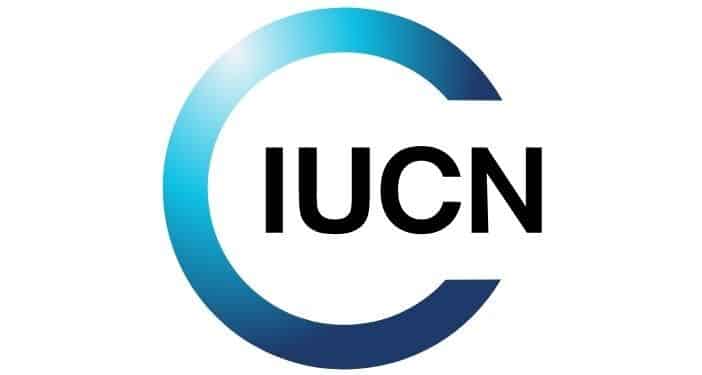New resolutions approved by the members of the International Union for Conservation of Nature (IUCN) may serve as a guiding star for governments looking to combat the destruction of natural resources and wildlife trafficking, says Scott Hajost, a leading international environmental law and policy expert. The four new resolutions with whistleblower language include recommendations on how to protect, enfranchise, and incentivize wildlife and natural resource whistleblowers on an international scale. IUCN resolutions are often used as reference points by governmental bodies around the world as they grapple with critical conservation and development issues. These new IUCN Marseilles Congress resolutions may encourage governments to use whistleblowers as essential tools in combating these crimes, which are very often committed internationally.
In a recent interview with Whistleblower Network News (WNN), Hajost explained the significance of the resolutions, how whistleblower provisions became incorporated in said resolutions, and the role the provisions may play in coming years, especially as the European Union (EU) moves towards a December 2021 deadline for member states to incorporate whistleblower directives into law. Hajost is the Senior Wildlife Policy Advisor to the National Whistleblower Center, as well as a member of the Executive Committee of the U.S. IUCN National Committee.
Over the past year and a half Hajost has worked tirelessly to incorporate whistleblower language in IUCN resolutions. The NWC first became a member organization of IUCN in time for the 2016 IUCN Hawai’i Congress; during the Congress, the NWC was announced as a grand prize winner for the Wildlife Crime Tech Challenge, a global initiative of the U.S. Agency for International Development (USAID) in partnership with National Geographic, the Smithsonian, and TRAFFIC that was designed to source, reward, and support innovative science and technology solutions to combat wildlife trafficking. Hajost led the Tech Challenge from start to finish. The Challenge asked organizations to find new methods for fighting the most difficult international wildlife crime issues. The NWC impressed the Challenge by creating an online portal that allowed international whistleblowers to anonymously report wildlife crimes and fraud that they experienced using U.S. laws with whistleblower provisions. Now, just 4 years later, whistleblower recommendations have been included in IUCN resolutions.
Hajost has played the role of facilitator in many of these relatively new relationships, helping the NWC to partner with other IUCN members including working with the Association of Zoos and Aquariums (AZA) in submitting a resolution on the private sector and wildlife trafficking. These are the 4 resolutions approved by IUCN members and now in effect that include whistleblower provisions:
- Res 38: Treating organized crime having an impact on the environment as a serious crime
- Res 40: Implementing international efforts to combat the sale of illegal wildlife products online
- Res 54: Engaging the private sector to combat wildlife trafficking
- Res 108: Deforestation and agricultural commodity supply chains
Before Hajost’s involvement, the only resolution that mentions whistleblowers was the one submitted with AZA Res 54, engaging the private sector to fight trafficking. After his involvement, all 4 resolutions have strong recommendations to protect and incentivize wildlife whistleblowers.
IUCN’s recent inclusion of whistleblowers as an important tool in fighting wildlife crime parallels another unique aspect of IUCN policy that the organization has pioneered: the inclusion of people and cultures as part of the conservation landscape. “This concept of people in nature is a hugely important part of the fabric of IUCN, including motions over the years, its work, including its Commissions, whether it’s the Commission on Environmental, Economic and Social Policy, or Gender and Rights,” Hajost told WNN. “The role of people in conservation, you don’t just fence it off… In many parts of the world, you have people in communities having to live in these places, and they’re a vital part of the fabric of protecting these places, including against poachers.” Instead of walling off local communities from being part of an apparatus that helps protect natural spaces and species, IUCN seeks to include and enfranchise them. Empowering local communities with the tools for “blowing the whistle” is the latest step in this process.
Hajost pointed out how novel the wildlife whistleblower enforcement approach is to much of the global community: “For most of the world, this is just so new.” He also spoke about how the NWC’s engagement with IUCN is trying to “link these U.S. laws which have international scope to conservation and wildlife trafficking including laws that aren’t usually environmental, like the Foreign Corrupt Practices Act (FCPA) and the False Claims Act (FCA).” These U.S. whistleblower laws can be used worldwide to empower whistleblowers to report bribes and fraud, but it’s only recently that organizations have begun to advocate for their applications in international wildlife whistleblowing. Hajost and NWC board Chair Stephen M. Kohn are also members of the IUCN World Commission on Environmental Law (WCEL) and look forward to working with WCEL and advancing legal work on whistleblower protections and rewards.
Hajost hopes that the IUCN members’ approval of these resolutions signifies a shift towards more international wildlife whistleblower policy. “For the 2016 Hawai’i congress, NWC didn’t become a member in time to vote, and clearly wasn’t a member in time to submit a motion. This is the first cycle and it has been an opportunity to try and build whistleblower language into some of these resolutions,” Hajost said. As whistleblower language becomes further incorporated into IUCN policy, it will become the job of policy advocates to point to IUCN policy and inclusion of whistleblowers when lawmakers around the world are making decisions about how best to protect their natural places and resources. Hopefully, whistleblowers will feature prominently in those solutions.
Read WNN’s previous article about the resolutions here.
Read WNN’s article on NWC’s approval of membership to ICUN here.
